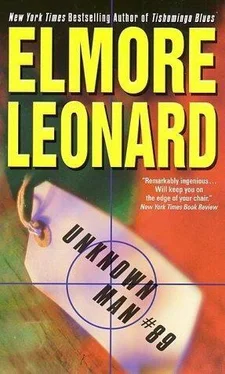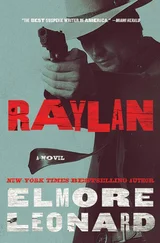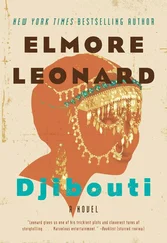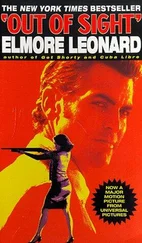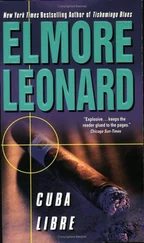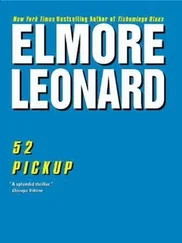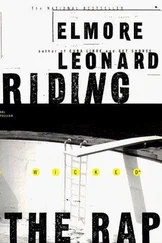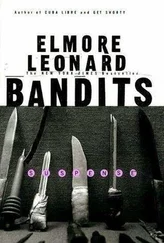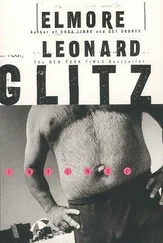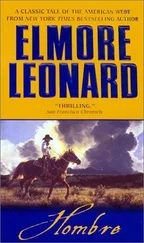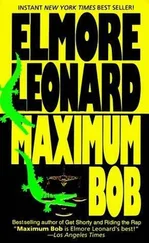ELMORE LEONARD - Unknown Man #89
Здесь есть возможность читать онлайн «ELMORE LEONARD - Unknown Man #89» весь текст электронной книги совершенно бесплатно (целиком полную версию без сокращений). В некоторых случаях можно слушать аудио, скачать через торрент в формате fb2 и присутствует краткое содержание. Жанр: Криминальный детектив, на английском языке. Описание произведения, (предисловие) а так же отзывы посетителей доступны на портале библиотеки ЛибКат.
- Название:Unknown Man #89
- Автор:
- Жанр:
- Год:неизвестен
- ISBN:нет данных
- Рейтинг книги:5 / 5. Голосов: 1
-
Избранное:Добавить в избранное
- Отзывы:
-
Ваша оценка:
- 100
- 1
- 2
- 3
- 4
- 5
Unknown Man #89: краткое содержание, описание и аннотация
Предлагаем к чтению аннотацию, описание, краткое содержание или предисловие (зависит от того, что написал сам автор книги «Unknown Man #89»). Если вы не нашли необходимую информацию о книге — напишите в комментариях, мы постараемся отыскать её.
Unknown Man #89 — читать онлайн бесплатно полную книгу (весь текст) целиком
Ниже представлен текст книги, разбитый по страницам. Система сохранения места последней прочитанной страницы, позволяет с удобством читать онлайн бесплатно книгу «Unknown Man #89», без необходимости каждый раз заново искать на чём Вы остановились. Поставьте закладку, и сможете в любой момент перейти на страницу, на которой закончили чтение.
Интервал:
Закладка:
“What’s that cost you?”
“Not a thing. Oh, I may send him a case of scotch, something like that.” Mr. Perez paused, but Ryan didn’t say anything. “It’s done all the time.”
“So then you try to find the lost stockholder.”
“That’s right. I locate the individual and I tell him I have knowledge of a certain property in his name that’s of some value.”
“You don’t tell him it’s stock.”
“No, that might be telling too much. I ask him to sign an agreement first, giving me a percent of the value as a finder’s fee. He does that, then I tell him what it is.”
“Can I ask you, what percent do you get?”
“Well, it depends. Sometimes, if there’s a lot of work involved, as much as half.” Mr. Perez took a sip of his whiskey and lit a cigarette. He was comfortable in the deep chair, at ease talking about himself. “So now the guy scratches his head and tries to think of what it is he owns or if something could have been left to him or what. Or he might want to talk to a lawyer first. That’s fine. Sometimes they’ll dig around and find the stock or remember it from years and years ago and I’m out of luck. I say thank you, I’ll be on my way. But if he doesn’t know what it is, then he signs the agreement and gives me power of attorney to handle the transaction. We sell the stock back to the company or on the open market, I take my percent, and everybody’s satisfied.”
“What if he doesn’t want to sell it?”
“That’s all right, he can pay me the equivalent of my percent.”
Ryan was trying to picture it. He said, “I can’t imagine the stockholder being too happy, splitting something he owns with a guy walks in off the street.”
“You get different reactions,” Mr. Perez said. “Most people are very grateful. I’ve found something that’s been lost and they look on it as paying a reward for its return.”
“I suppose, if you look at it that way,” Ryan said. Like Mr. Perez was doing them a favor. Maybe he was. But there was something about it, something about warm, friendly Mr. Perez that bothered Ryan. He wondered about other sides of the man; what he was like when he was pissed off, or when a deal fell through, or when he didn’t like somebody. Mr. Perez had already, no trouble at all, crossed off Jay Walt.
“Now tell me what you’ve got,” Mr. Perez said, “that’s worth more than two hundred dollars a day.”
“I told Jay Walt a hundred and fifty,” Ryan said. “Not two hundred.”
“Well, I guess he added on a commission, then.” It didn’t seem to bother Mr. Perez. “What you got?”
Ryan told him that Robert Leary, Jr., first of all, was thirty-five, not sixty; had gone to school in Detroit, briefly, and had married a Denise Leann Watson a few years ago.
“You see,” Mr. Perez said, “I assumed he was an adult back in 1941 when the stock was listed in his name. But he would’ve just been born then, wouldn’t he?”
“We’re getting to that,” Ryan said. He told Mr. Perez that Robert Leary, Jr., was never listed as a resident of 146 Arden Park. But Probate records showed the owner and resident, a man by the name of Allen Anderson, died in 1941 and left his entire estate to his wife and children, with the exception of fifteen hundred shares of common stock, with a value at the time of a dollar a share, that was left to a Robert Leary, a household employee of the Andersons for some twenty years.
“Did the record say what the stock is?”
“I don’t think so. It said other considerations, including stock certificates.”
Mr. Perez nodded. “So it was his father. The stock’s left to him, his son’s born about the time and he reassigns the stock in his son’s name. Pay for his college education, so he won’t have to be a servant like his father. That must be what happened.”
“Well, I don’t know about college,” Ryan said, “but the man you want has spent some time in institutions.” He took folded sheets of paper out of his inside coat pocket and looked at Mr. Perez as he opened them. “I have a friend, he’s with the Detroit police.”
“That’s a good place to have one,” Mr. Perez said.
“I stopped off this morning, made these notes. You ready?”
“I can’t wait,” Mr. Perez said.
“Robert Leary, Jr., also known as Bobby Lear,” Ryan began…
Born in Detroit. Both parents deceased by the time he was ten. Raised in foster homes…
“I can get the names if I need them.”
… attended Cass Technical High School, dropped out, was drafted and sent to Vietnam, where, according to U.S. Army psychiatrists, he suffered a severe nervous breakdown during a mortar barrage near Chu Lai. Leary was hospitalized and returned to duty on a “maintenance dosage” of Thorazine. Evacuated again for treatment and hospitalized for psychiatric disorders in Japan, in Hawaii, and finally at Valley Forge General, Phoenixville, Pennsylvania, from which he was discharged as one hundred percent psychiatrically disabled. Leary was given an honorable discharge, and a guaranteed income for life, and returned to Detroit to begin killing people.
“My,” Mr. Perez said. He was holding his glass, about to take a drink. “That’s what it says?”
“That’s the way I put it down,” Ryan said.
He beat a woman to death with his fists. Her name was Thelma Simpson and she was said to be his girl friend.
Ryan looked up. “Leary was married at the time, but none of the police reports mention his wife.”
Two days later he shot and killed Eugene Bailey, a known dope dealer who Leary believed was fooling around with Thelma Simpson. Leary’s attorney, at the trial, called in V.A. hospital psychiatrists to testify. Leary was declared insane and sent to the state hospital at Northville. Within six months he was judged to be normal and released.
Leary was arrested for armed robbery-charged, along with two others, with the holdup of a savings and loan company-then acquitted when the witnesses, in court, changed their previous testimony and could not make a positive identification of Leary.
Leary was arrested for the attempted murder of Ronnie J. Hughes in a dope pad on Orchestra Place and released on bond. A week later Ronnie J. Hughes was killed in front of a bar on Twelfth Street by an unknown assailant. Three days later the two men who had witnessed the dope-pad shooting were found at the foot of Twenty-third Street near the river; both had been bound and shot through the head at close range.
Leary walked into the Veterans Administration Hospital in Allen Park claiming to be the President of the United States. A week later he checked into the Battle Creek V.A. hospital and remained under observation five days.
Leary shot and severely wounded a man in a bar on Cass Avenue over a ten-dollar gambling debt. The charge was reduced to felonious assault, and Leary was sent to Jackson to serve a three and a half to four. His lawyer appealed, basing his case on Leary’s history of mental illness, and he was transferred to the Ionia State Hospital. Three months later he was released.
Leary shot and killed a man by the name of Teddy “Too Much” Smith in his white Eldorado while Teddy Smith’s three-year-old son, sitting in the front seat, watched.
A police informant who knew Leary said, “Bobby told me one time he never had to worry about going to jail for very long on account he had a act he put on.” The man pointed to his head.
Leary told a state psychiatrist he had probably killed twenty people. Following the shooting of Teddy Smith, he gave the police the names of ten victims after he was promised immunity from prosecution. The police believed he was telling the truth about eight of the victims and closed those cases. Most of the victims lived in Leary’s neighborhood and were involved commercially in narcotics. Few, if anybody, would miss them; especially the police. Leary was brought to trial for the murder of Teddy Smith, was again judged insane, and was committed to the state’s Center for Forensic Psychiatry at Ypsilanti.
Читать дальшеИнтервал:
Закладка:
Похожие книги на «Unknown Man #89»
Представляем Вашему вниманию похожие книги на «Unknown Man #89» списком для выбора. Мы отобрали схожую по названию и смыслу литературу в надежде предоставить читателям больше вариантов отыскать новые, интересные, ещё непрочитанные произведения.
Обсуждение, отзывы о книге «Unknown Man #89» и просто собственные мнения читателей. Оставьте ваши комментарии, напишите, что Вы думаете о произведении, его смысле или главных героях. Укажите что конкретно понравилось, а что нет, и почему Вы так считаете.
